Magic: The Gathering's Lord of the Rings set gives the card game a mythic resonance other crossovers lacked
The Fortnite cards, not so much.
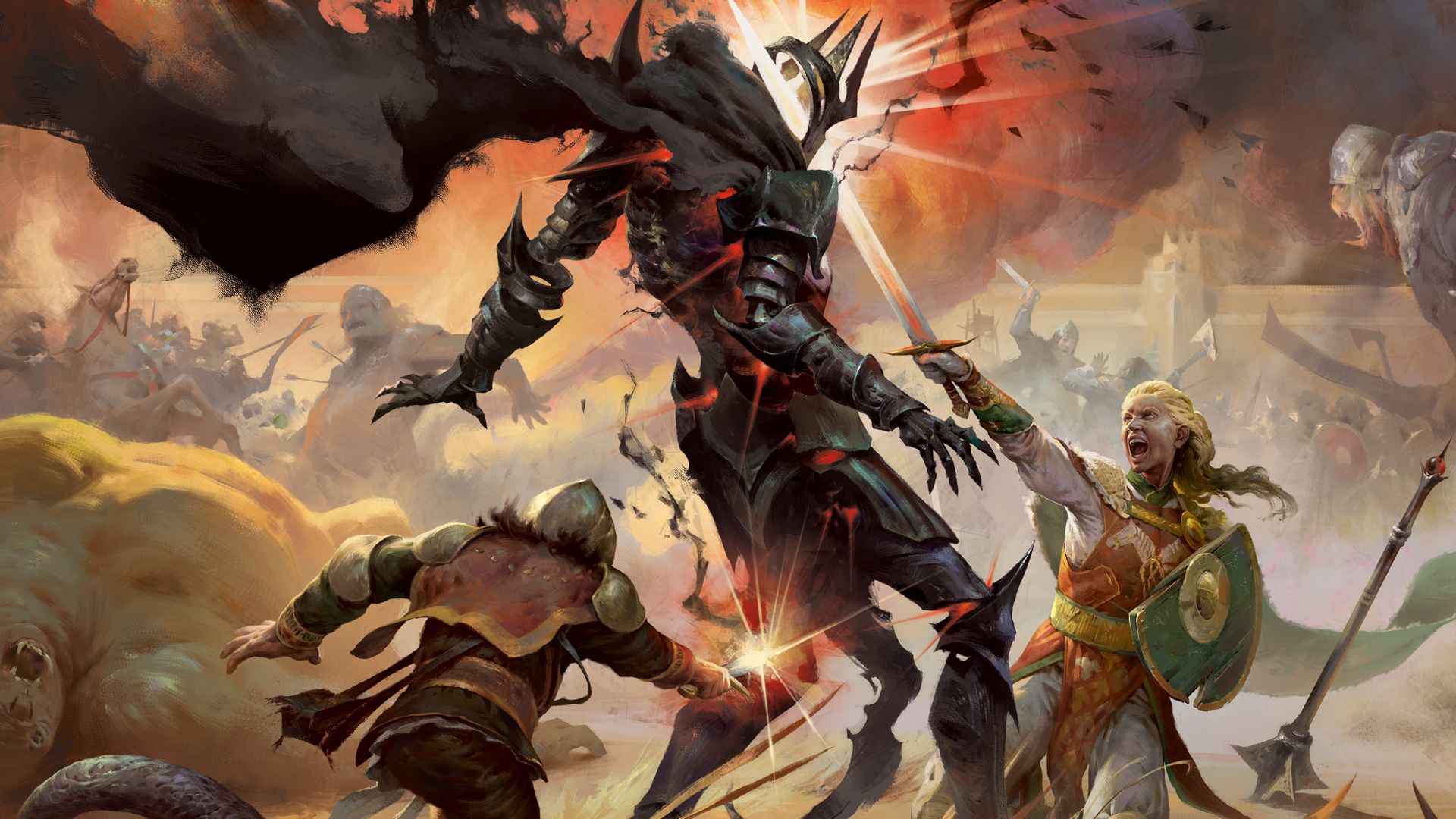
By now, you've probably heard about the One of One Ring, a one-of-a-kind Magic: The Gathering card representing the One Ring to rule them all, find them all, and etcetera them all. It's out there in a Collector Booster somewhere like a golden ticket to Willy Wonka's factory and already worth a million dollars. That's one attention-grabbing gimmick, but the Magic: The Gathering/Lord of the Rings crossover set Tales of Middle-earth is full of thematically appropriate touches. My favorite is a less flashy example. It's Lobelia Sackville-Baggins.
The relative who hastily assumes Bilbo is dead so she can auction off his cutlery, Lobelia appears in Tales of Middle-earth alongside more immediately impressive creations of Tolkien's like Shelob or Tom Bombadil. Her effect on the game is low-key. If you play Lobelia the same turn one of your opponent's cards gets discarded into their graveyard, you score a number of treasure tokens equal to the discard's power. Basically, Lobelia shows up after someone's funeral and grabs all their silverware. It's a flavorful use of Magic's mechanics to bring one of Tolkien's minor characters to life, and that kind of reverent attention to detail is obvious all the way through this set.
Where some of the previous crossovers have had their work cut out for them translating more exotic settings into Magic terminology, I kind of expected a fantasy setting like Middle-earth would be evoked more plainly. It's a pleasant surprise to see how much effort has gone into making Magic feel like Tolkien. Orc cards borrow the Amass keyword previously used for zombies to throng together in a singular horde, while the Nazgûl let you break the normal "four cards of the same type except basic lands" rule and stack your deck with nine of them.
In a cute touch, Shadowfax not only has the Haste ability, but explains how it works on the card text. Haste is such a common effect—letting a creature attack the same turn it's played—that Magic cards normally don't waste space explaining it, but Shadowfax will show us the meaning of haste.
Meanwhile, hobbit cards constantly hand out food tokens, which can either be eaten to give yourself life points or be spent in more inventive ways. I saw this in action when I played Tales of Middle-earth in Jump-In, the mode in Arena where you choose two themes from two random sets of options then play with a deck that combines them. First I chose "Shire", a theme heavy on hobbits, and when the second selection offered one called "Breakfast" I obviously had to take that as well. The resulting green/white deck wasn't particularly powerful, but accumulated food like a hoarder buying pandemic pasta.
That came in handy when I was matched against a blue/green deck full of powerful cards like Gandalf, Elrond, and the Generous Ent, as well as Arwen Undómiel, who piled +1/+1 counters on her allies. My side of the board contained a much more ordinary squad: an Eastfarthing Farmer, a Bag End Porter, and Bill the Pony. Fortunately I also had The Battle of Bywater, which destroys every creature on the table with power 3 or higher. That hurt my opponent's force a lot more than mine. The Battle of Bywater then hands you a food token for every creature you have left, adding to a stack of food that was almost high enough to cover an entire day's worth of hobbit meals already.
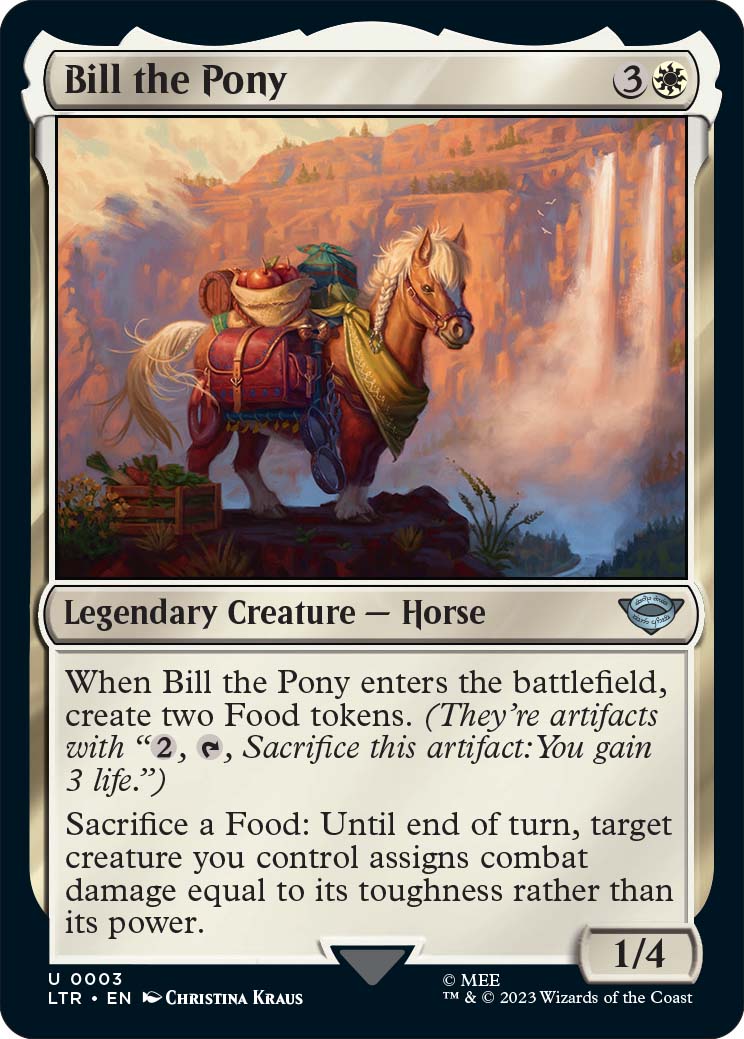
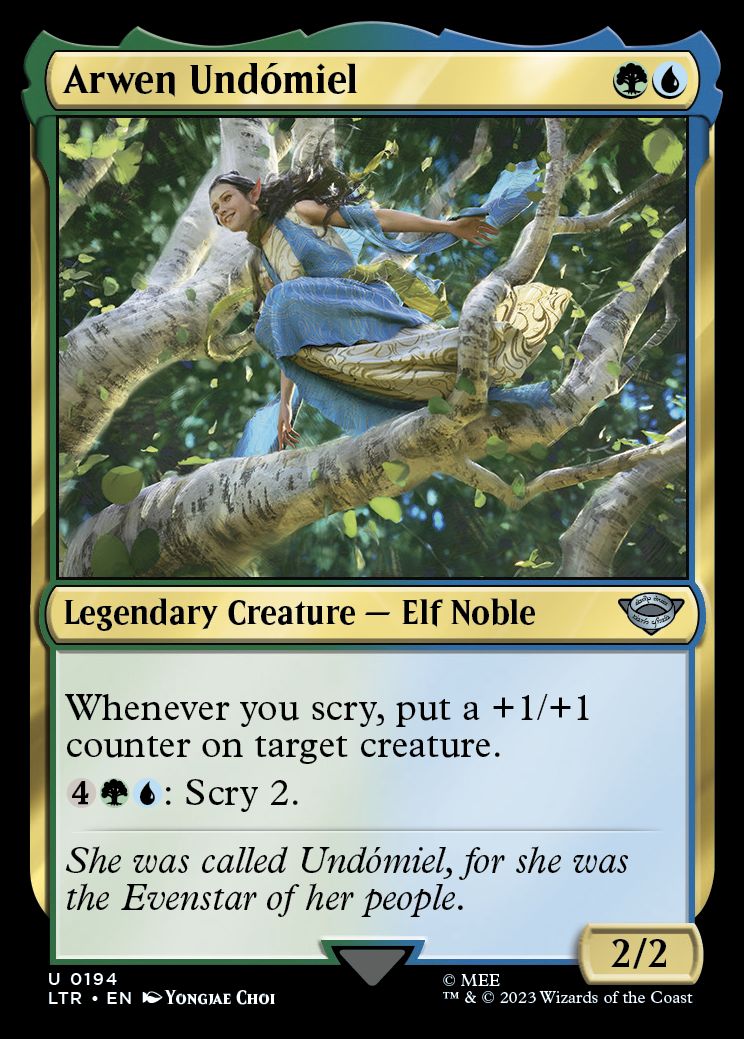
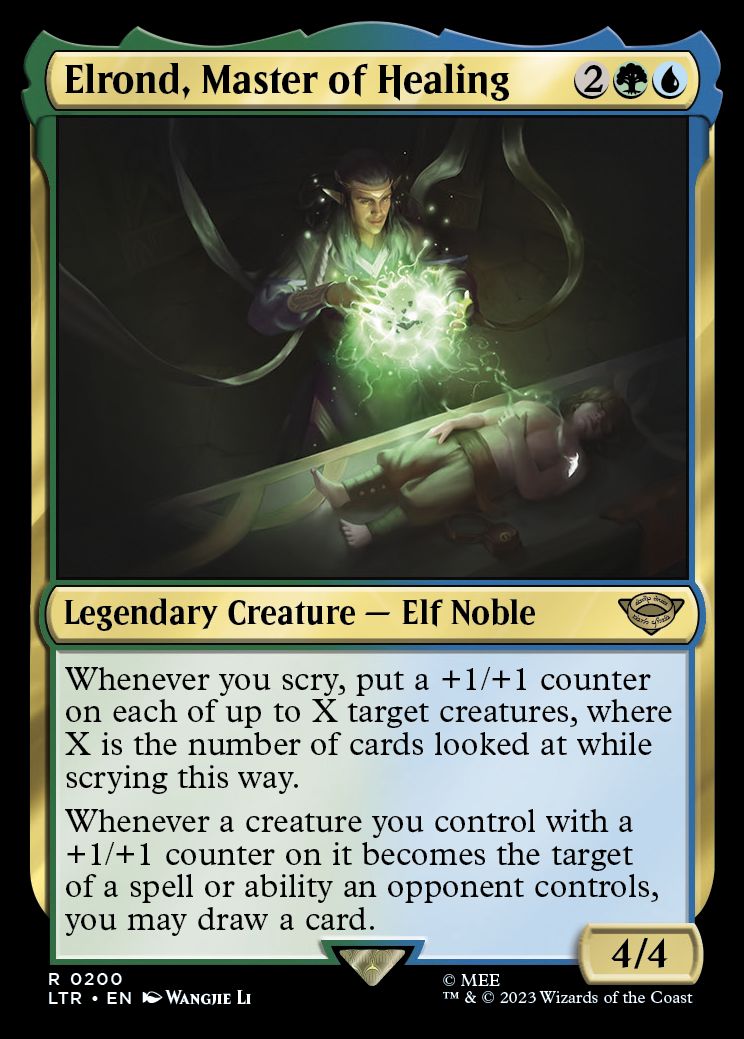
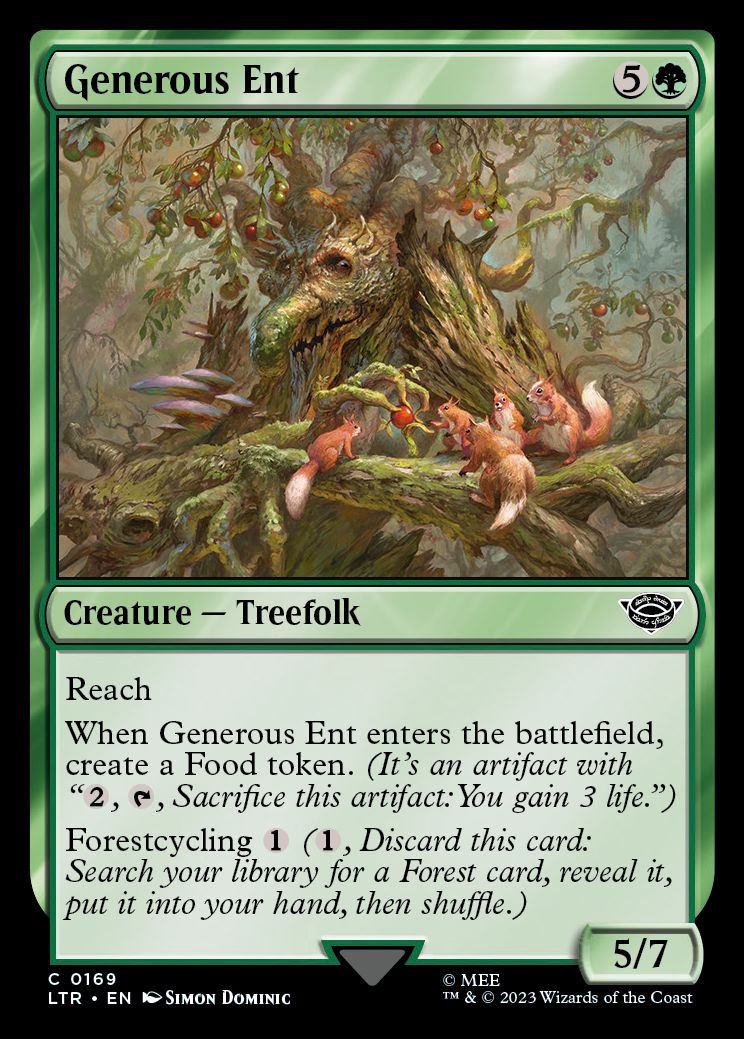
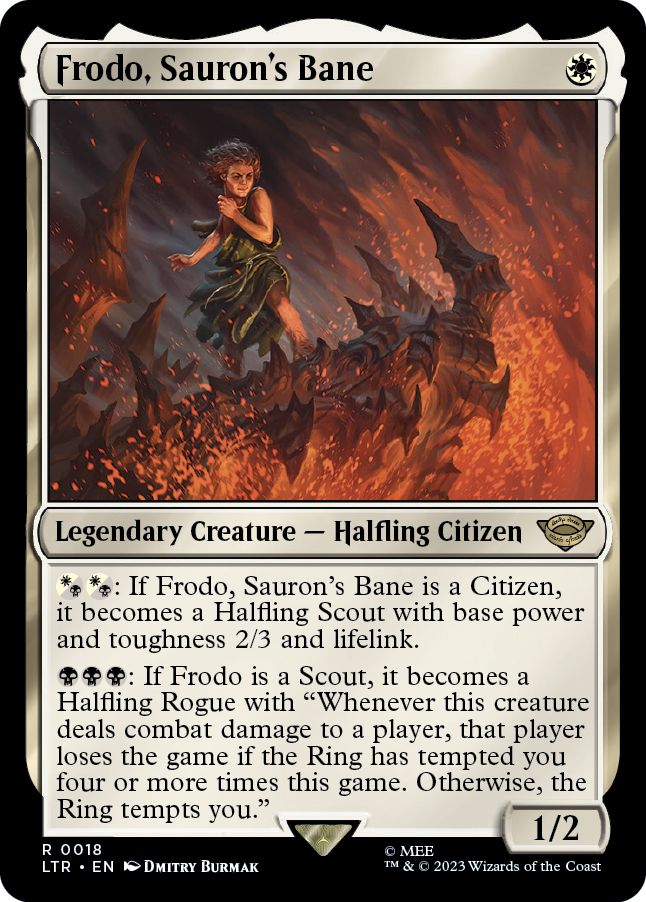
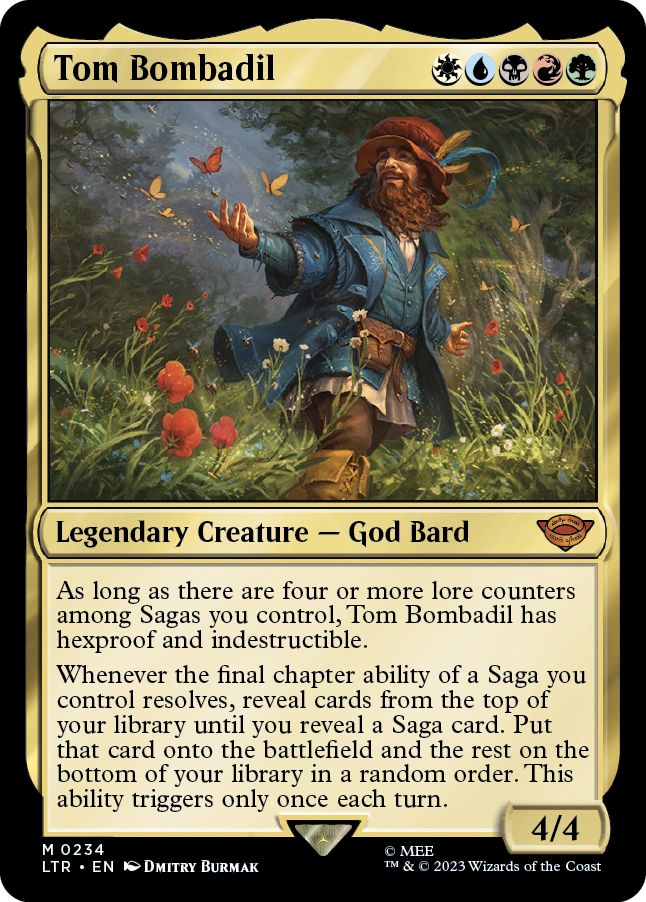

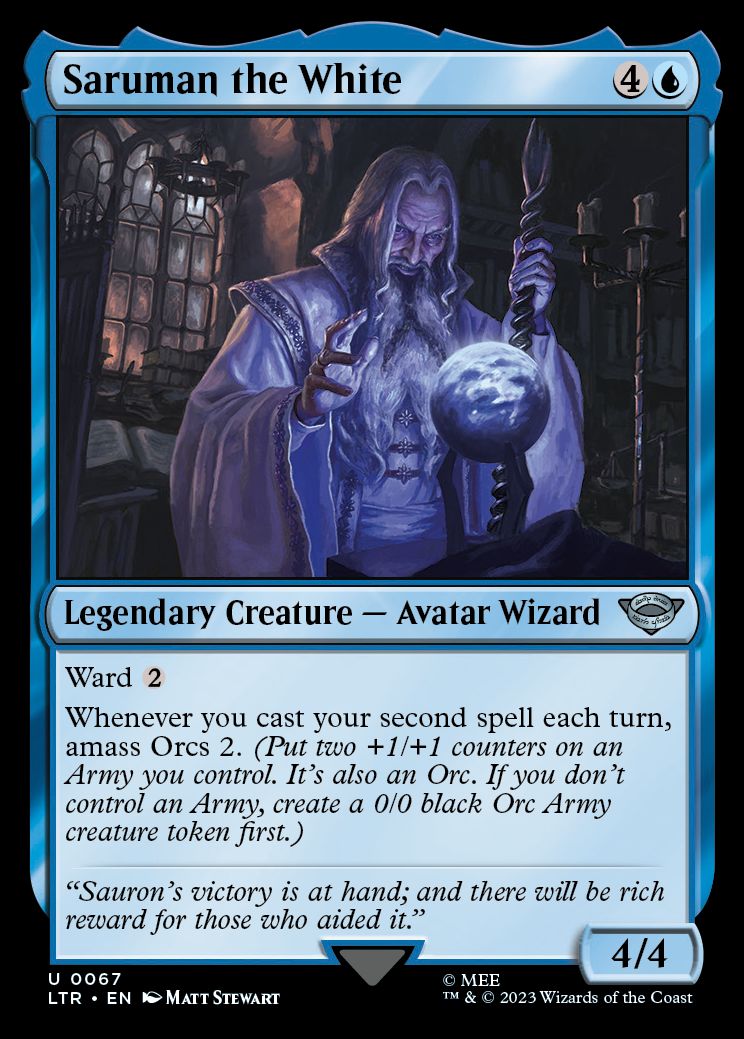
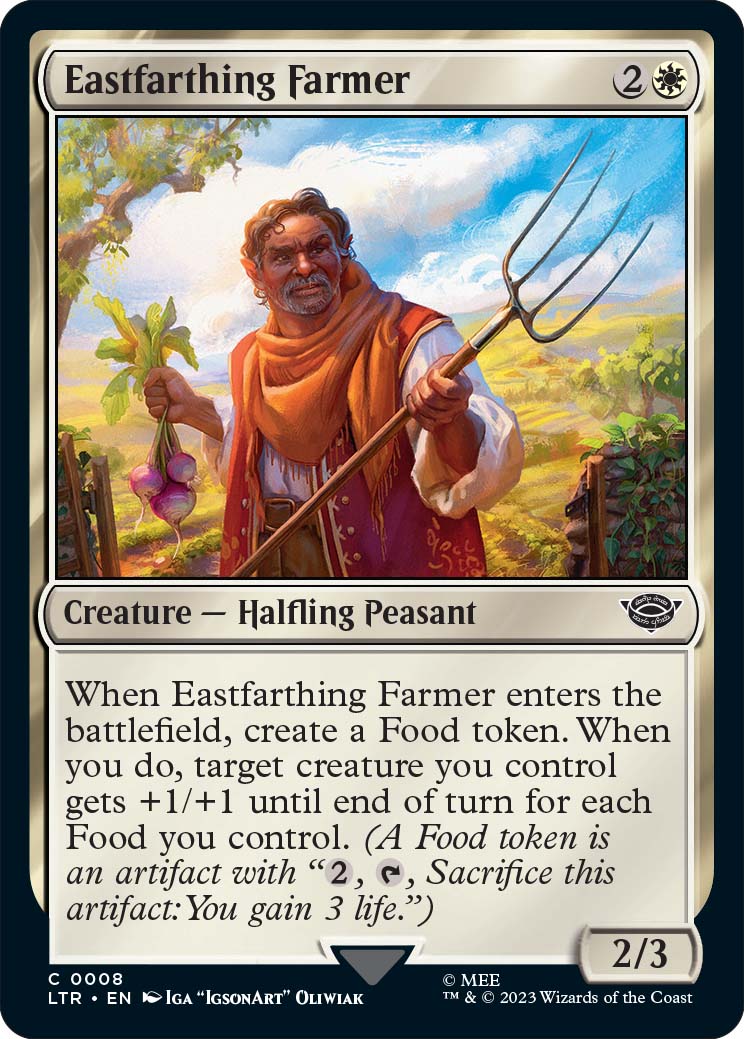
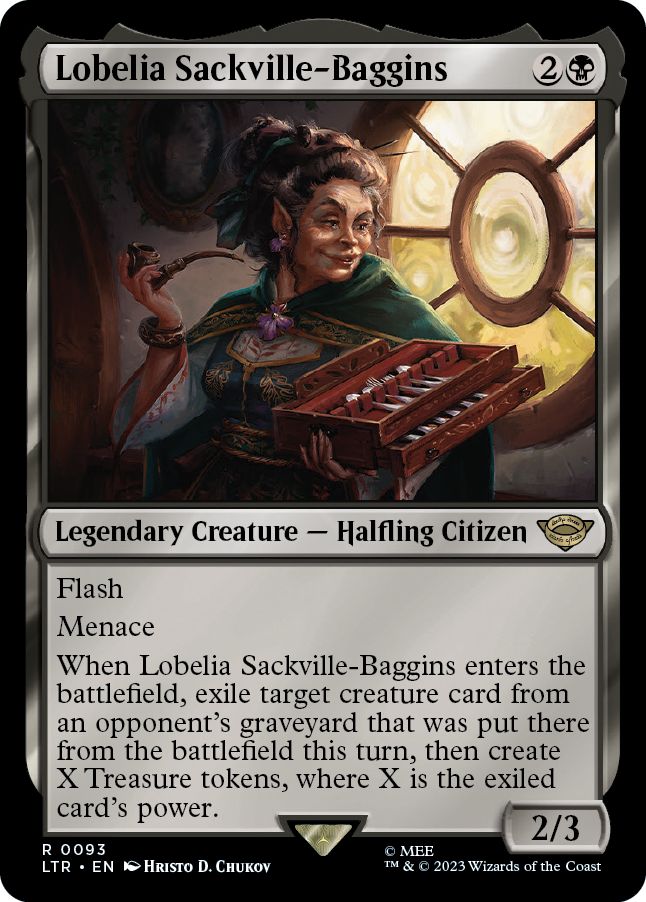
Over the next few turns I fed that food to Bill the Pony, activating his ability to let a creature attack with its toughness rather than its power. That turned him from a lowly 1/4 to a little 4/4 powerhouse who won the game for me before the other player could recover.
Keep up to date with the most important stories and the best deals, as picked by the PC Gamer team.
The strength of a familiar theme is that it makes even ordinary interactions seem weighty, whether you're feeding Bill the Pony, using Saruman the White's ability to Amass orcs whenever you cast two spells in the same turn to build an army, or playing Éowyn, Fearless Knight to defeat the Witch-king of Angmar. I'm not convinced the new mechanic called The Ring Tempts You lives up to its inspiration in the same way, however. The name suggests it'll be a risk, but it's actually a temptation with no downside.
Each time you play a card or ability with The Ring Tempts You on it, you choose a creature to be your Ring-bearer—each player can have their own Ring-bearer, which seems odd—and they gain a buff from a list. The first one makes your Ring-bearer unblockable by anyone with a power higher than theirs, a nice motivation for choosing a weaker card to carry the burden, while the fourth and final buff deals three damage to every other player whenever your Ring-bearer hurts someone in combat. Which is fine, but not exactly worth marshaling the forces of evil and driving the elves to pass beyond the sea for.
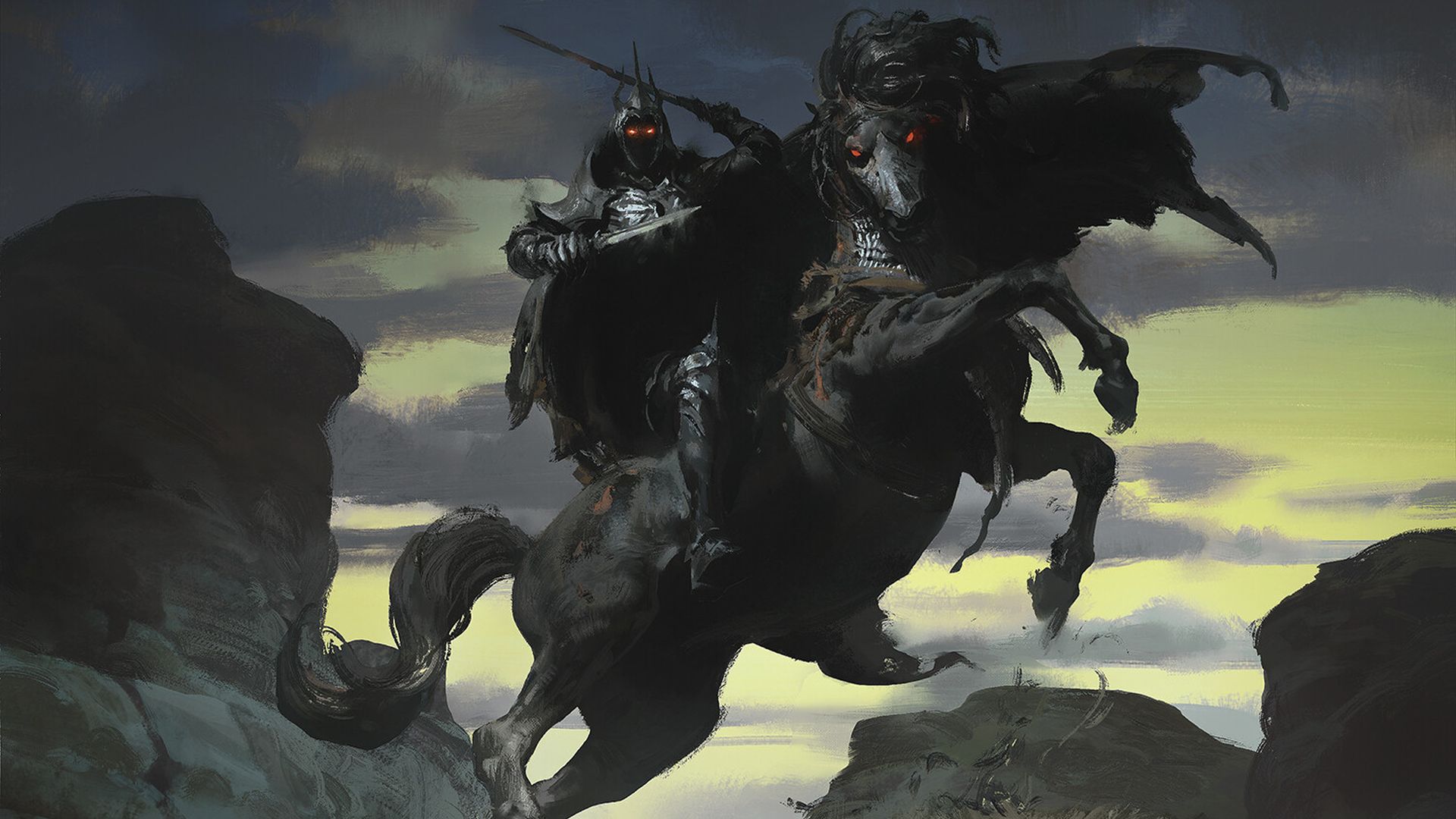
It gets interesting if you play Frodo, Sauron's Bane, which starts out weak but gains power with an investment of mana, eventually assuming a final form that can win the game outright if you've been tempted by the Ring at least four times. The idea of Frodo evolving like a Pokémon while someone throws everything they've got at stopping him does have some of that Lord of the Rings grandeur, and I do like a victory condition that changes the flow of a match.
The real temptation offered by the Ring is the idea of scoring that unique card worth a million dollars, though. I like to think if I found it I'd throw it in the nearest volcano in a symbolic act of defiance against the idea of Magic cards as a resellable commodity rather than things you play a game for fun with, but a million bucks is a lot of money. And maybe if I hung onto it the value would go up even more. After all, why not? Why shouldn't I keep it? This is a line of thinking that could never lead to anything bad happening.
The Lord of the Rings: Tales of Middle-earth will be available in physical form from June 23, and is playable in Arena now, which you can find on Steam and Epic. This is the first crossover set to appear in Arena, where it's legal in the Historic and Alchemy formats, but not Standard.

Jody's first computer was a Commodore 64, so he remembers having to use a code wheel to play Pool of Radiance. A former music journalist who interviewed everyone from Giorgio Moroder to Trent Reznor, Jody also co-hosted Australia's first radio show about videogames, Zed Games. He's written for Rock Paper Shotgun, The Big Issue, GamesRadar, Zam, Glixel, Five Out of Ten Magazine, and Playboy.com, whose cheques with the bunny logo made for fun conversations at the bank. Jody's first article for PC Gamer was about the audio of Alien Isolation, published in 2015, and since then he's written about why Silent Hill belongs on PC, why Recettear: An Item Shop's Tale is the best fantasy shopkeeper tycoon game, and how weird Lost Ark can get. Jody edited PC Gamer Indie from 2017 to 2018, and he eventually lived up to his promise to play every Warhammer videogame.

